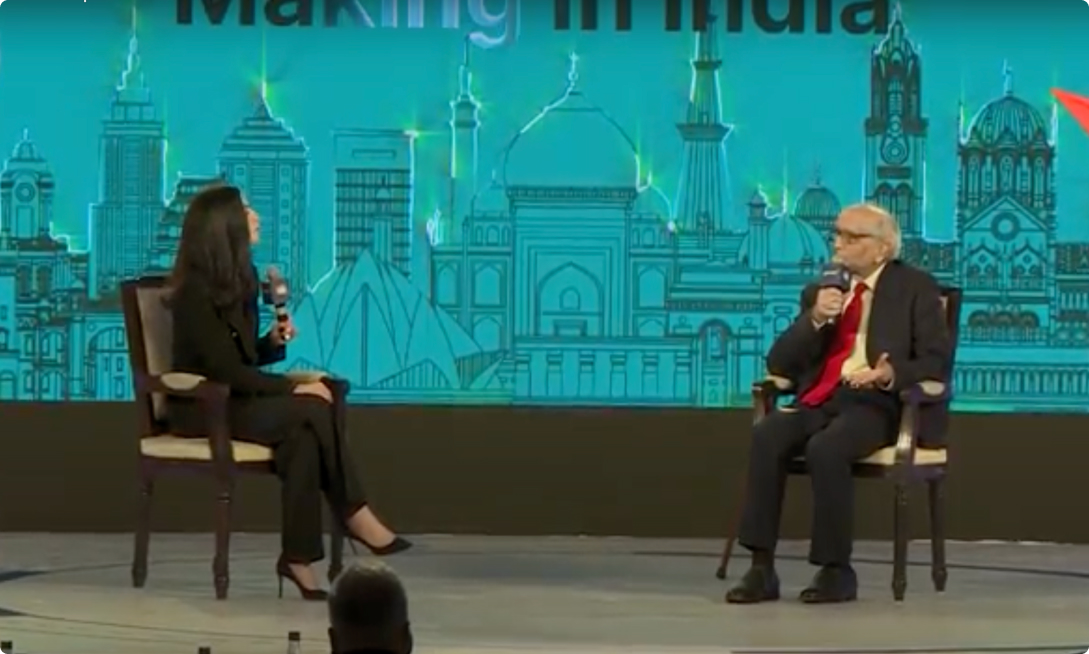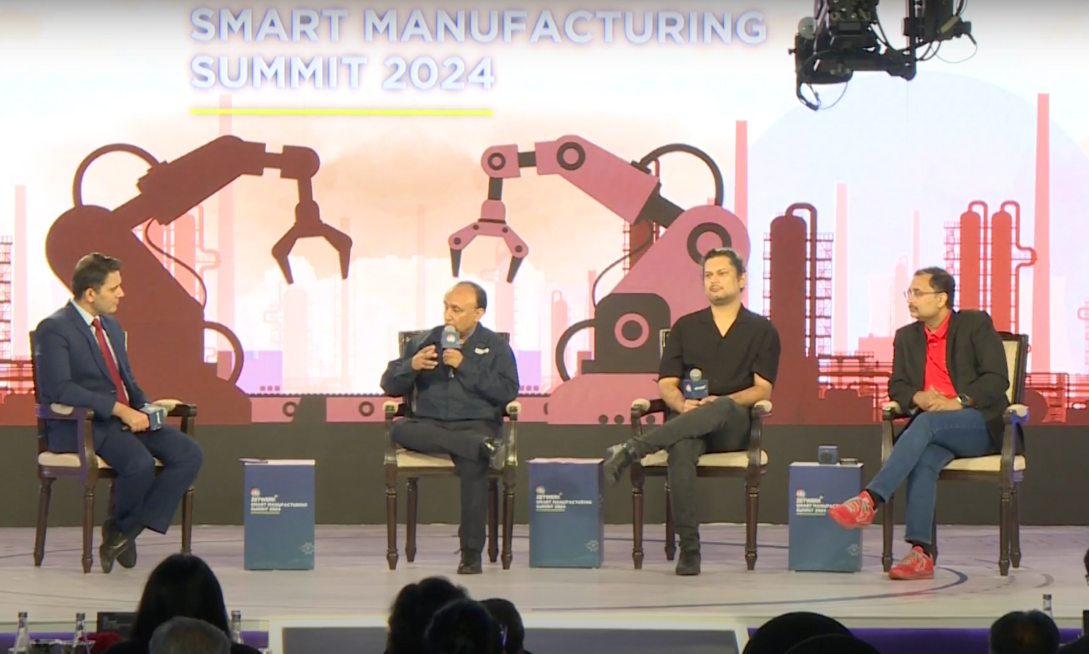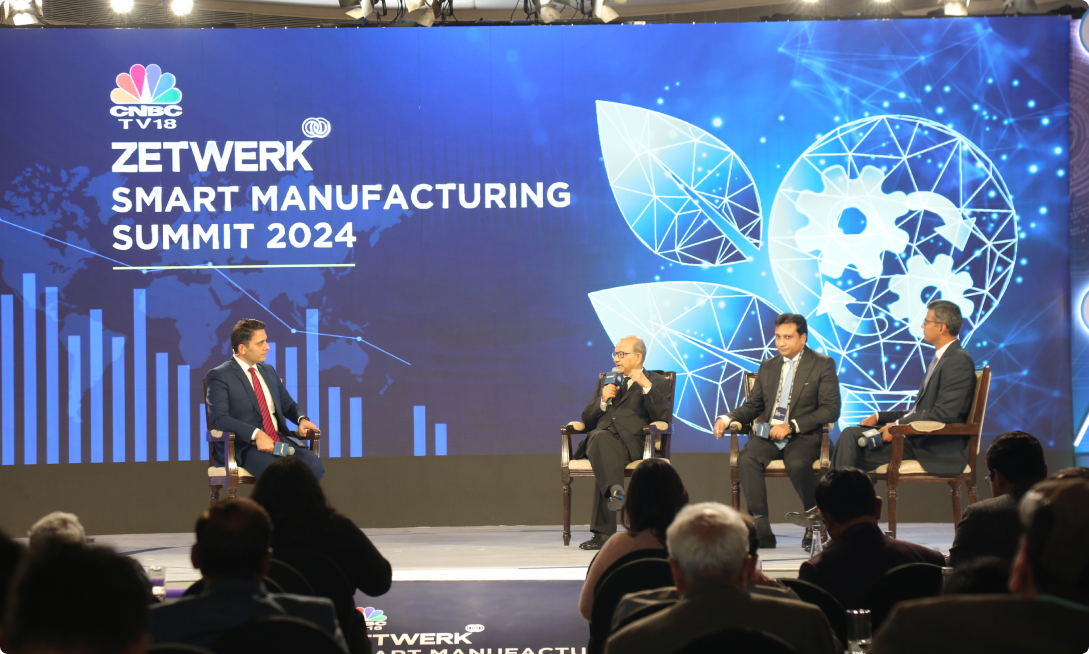Driving Excellence: Unraveling Maruti Suzuki’s Journey with R.C. Bhargava

Insights on Leadership, Entrepreneurship, and the Future of Indian Manufacturing
In Indian manufacturing, few stories rival the meteoric rise of Maruti Suzuki. From humble beginnings in 1983 to becoming a global automotive giant, the Maruti story shows what visionary leadership, effective public-private partnerships, and a relentless pursuit of excellence can do for a brand. In a conversation at the ZETWERK Smart Manufacturing Summit 2024 with Mr. R.C. Bhargava, Chairman of Maruti Suzuki India Ltd., we learned about the company’s journey, leadership ethos, and the future of Indian manufacturing.
Genesis of Success
Reflecting on Maruti’s astounding growth, Mr. Bhargava acknowledged the initial skepticism surrounding the venture. In the early ’80s, selling 100,000 cars in India seemed implausible. However, through strategic partnerships, governmental support, and a commitment to quality, Maruti defied expectations. Mr. Bhargava spoke of the role of the then Prime Minister of India, Mrs. Indira Gandhi’s interest in the project, which shielded Maruti from political interference and enabled sound decision-making.
Nurturing Excellence
Central to Maruti’s success is its culture of continuous improvement. Drawing inspiration from Japanese manufacturing principles, Mr. Bhargava highlighted the importance of fostering collaboration between management and workers. By aligning employees’ long-term interests with the company’s growth, Maruti cultivated a workforce dedicated to innovation and efficiency. Clear communication, fair incentives, and a shared vision propelled Maruti towards excellence.
Market Dynamics and Vision
While early dominance was natural due to limited competition, Maruti prioritized efficient capacity utilization over market share expansion. This pragmatic stance ensured steady growth without compromising operational efficiency or financial stability.
Future Outlook and Challenges
Looking ahead, Mr. Bhargava acknowledged the unique challenges posed by Maruti’s unparalleled success in the Indian market. With plans to produce 4 million cars annually by 2030-31, Maruti faces the challenge of organizational restructuring and market adaptation. The company’s leadership, including a new generation of managers, is gearing up to navigate uncharted territory and redefine industry standards.
Leadership Lessons and Entrepreneurial Spirit
Throughout the conversation, Mr. Bhargava’s leadership philosophy shone through. His emphasis on transparent communication, strategic partnerships, and employee-centric policies underscored Maruti’s commitment to sustainable growth and social responsibility. The Maruti story is not just about manufacturing cars but also about India’s entrepreneurial spirit and the power of effective leadership in shaping industries.
Maruti’s Electric Vehicle Strategy
Talking about Maruti’s cautious approach towards EVs, Mr. Bhargava elaborated on Maruti’s history with EVs, highlighting the challenges of pricing and market readiness. Despite initial attempts, such as developing an electric version of the Wagon R, the high costs and market constraints made it clear that the vehicle would not be economically feasible.
Mr. Bhargava’s perspective acknowledges the complexities of the Indian market, where factors like infrastructure, customer behavior, and energy sources play significant roles. Maruti’s decision to diversify into technologies like hybrids, CNG, and biogas reflects a nuanced understanding of the market’s needs and the pursuit of a sustainable, multi-faceted approach.
Building a Strong Auto Ancillary Ecosystem
Maruti’s success is not just about its vehicles but also its robust auto ancillary ecosystem. Mr. Bhargava emphasized the importance of treating vendors as partners and investing in their development. This approach, unconventional at the time, proved instrumental in ensuring quality, cost efficiency, and a resilient supply chain.
The insights shared underscore the significance of collaborative ecosystems in fostering growth and innovation within industries. Maruti’s model serves as a blueprint for other sectors, showcasing the power of strategic partnerships and long-term vision.
Lessons for Indian Manufacturing
Beyond Maruti’s specific strategies, Mr. Bhargava offered valuable lessons for Indian manufacturing. He emphasized five commandments for success:
Strong Workforce Relations: Acknowledging the expertise and knowledge of workers and motivating them to actively participate in improving manufacturing processes.
- Frugality: Advocating for prudent resource management and internal growth versus excessive borrowing or capital raising.
- Leadership Commitment: Encouraging leaders to prioritize the company’s growth over personal accolades, fostering a culture of selflessness and dedication.
- Supply Chain Resilience: Recognizing the critical role of a robust supply chain in ensuring operational efficiency and competitiveness.
- Customer Focus: Prioritizing customer satisfaction and confidence, which are integral to sustained success.
These principles point to Maruti’s journey and reflect Mr. Bhargava’s deep-rooted understanding of what drives sustainable growth in manufacturing.
Looking Towards the Future
In addressing the current state of Indian manufacturing, Mr. Bhargava highlighted both progress and challenges. While infrastructure and policy changes have improved the landscape, but there’s still work to be done, especially in fostering a conducive environment for manufacturing competitiveness.
The geopolitical shifts and global opportunities present a promising outlook for Indian manufacturing. However, Mr. Bhargava emphasized the need for a holistic approach, including mindset shifts within the bureaucracy and focusing on enhancing entrepreneurial skills and competitiveness.
Advice for Young Entrepreneurs
Aspiring entrepreneurs can glean invaluable advice from Mr. Bhargava’s wealth of experience. His emphasis on frugality, teamwork, customer-centricity, and continuous growth resonates deeply in today’s dynamic business environment.
The key takeaway is that while challenges exist, so do immense opportunities. Mr. Bhargava’s optimism for India’s future underscores the potential for growth and innovation, provided businesses embrace the right strategies and mindset.
As India continues its journey as a manufacturing hub, lessons from industry stalwarts like Mr. Bhargava serve as guiding lights for businesses navigating the complexities of the modern era.







